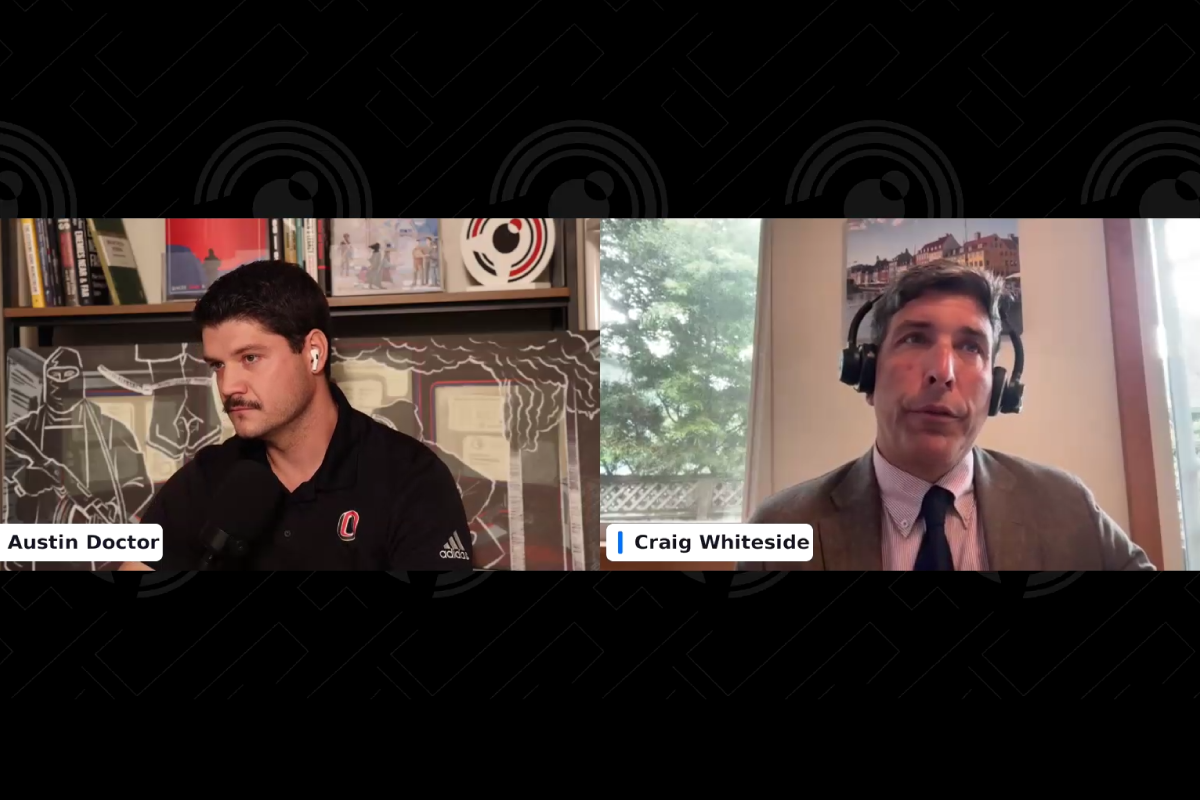WEBINAR RECAP: Non-State Special Operations With Craig Whiteside
On Aug. 20, NCITE hosted a webinar on the new book, "Non-State Special Operations; Capabilities and Effects" with author Craig Whiteside, LTC, USA (ret), Ph.D.
- published: 2025/08/26
- contact: NCITE Communications
- phone: 4025546423
- email: ncite@unomaha.edu
- search keywords:
- non-state actors
- special operations
- October 7

On Aug. 20, NCITE hosted a webinar on the new book, "Non-State Special Operations; Capabilities and Effects" with author Craig Whiteside, LTC, USA (ret), Ph.D. In a conversation moderated by Austin Doctor, Ph.D., NCITE director of strategic initiatives, Whiteside discussed the book's examination of violent non-state actors' (VNSAs) development and execution of special operations.
Whiteside is professor of national security affairs at the US Naval War College resident program at the Naval Postgraduate School in Monterey, California, and co-authored the book with Ian Rice, adjunct senior lecturer in the department of defense analysis at the Naval Postgraduate School.
Key Takeaways
Non-state special operations are similar to state operations — with significant resource limitations.
Whiteside defines a special operation as “a high risk, well-resourced, specialized tactical military action that is a departure from normal tactics and intended to create an outsized strategic or political effect.”
-
Special operations are typically ad hoc with temporary teams, as the cost of sustaining such initiatives is beyond the financial means of most non-state groups.
-
A prime example of special operations, according to Whiteside, were the October 7, 2023 attacks conducted by Hamas against Israel.
They’re relatively rare.
Of about 4,000 violent events committed by the Islamic State from 2007 – 2013, Whiteside and Rice found that only three qualified as special operations. “And that makes sense, because these groups are very risk-averse,” Whiteside said. “They're fighting larger states a lot of times, and so they have to be very careful.”
Groups use special operations as larger campaign transition points.
Concerning the Islamic State, Whiteside said that groups use special operations as part of their “operational art”, or their higher-level strategic sequencing. He made note of the 2012 Haditha raid and the 2013 Abu Ghraib prison breakout as special operations designed to signal the IS “Breaking the Walls” and “Harvest of the Soldiers” campaigns, respectively.
These strategic placements aren’t obvious, Whiteside said. “When I look back, I'm really kind of embarrassed that I spent, you know, a large part of my life studying this group, and yet it took writing this book to be like, oh, wow, these are very oddly timed,” Whiteside said.
Cartels – the newest additions to the U.S. FTO list – fit uniquely into the mold.
Whiteside said that while cartels have similar special operations to militant groups like ISIS – leader targeting, prison breaks – their strategy still surrounds their bottom line.
“Creating a monopoly from the grower to the buyer in a market and then being able to lock down every aspect of that supply chain is really their special operation,” Whiteside said.
“Strategic empathy” is crucial from a countering perspective.
Reflecting on his counterinsurgency experience as a U.S. Army infantry officer in Iraq, Whiteside said that understanding militants’ perspectives is key to predicting tomorrow’s attacks.
“I was humbled by them frequently enough to not just take them seriously,” Whiteside said, “but to understand what they’re trying to do from a strategic, operational, tactical perspective.”